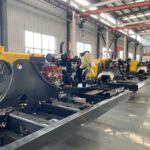Introducción
Bulldozers are indispensable machines in the construction industry, playing a vital role in earthmoving, grading, and site preparation tasks. With various bulldozer types available on the market, choosing the right one for your project can be a daunting task. In this guide, we’ll decode the different bulldozer types, explore their unique features and applications, and provide insights to help you determine which bulldozer fits your project requirements.
Understanding Bulldozer Types

What are Bulldozer Types?
Bulldozer types refer to different configurations and sizes of bulldozers designed for specific construction tasks and environments. From small, agile machines to large, powerful units, bulldozer types offer versatility and performance tailored to various project needs.
Importance of Choosing the Right Bulldozer
Selecting the appropriate bulldozer type is crucial for optimizing productivity, efficiency, and safety on construction sites. Factors such as terrain, project scope, and operational requirements influence the choice of bulldozer, making informed decision-making essential for project success.
Decoding Bulldozer Types
Crawler Bulldozers
Crawler bulldozers, also known as track-type bulldozers, are equipped with steel tracks that provide superior traction and stability, making them ideal for rough terrain and heavy-duty earthmoving tasks.
Wheel Bulldozers
Wheel bulldozers feature tires instead of tracks, offering increased mobility and speed on flat, even surfaces. They are commonly used in urban construction projects and road maintenance applications.
Mini Bulldozers
Mini bulldozers, also known as compact bulldozers, are smaller in size and more maneuverable than traditional bulldozers. They excel in tight spaces and light-duty earthmoving tasks, making them ideal for residential construction and landscaping projects.
Swamp Bulldozers
Swamp bulldozers are specially designed for operation in wet, marshy terrain, featuring wide tracks or floatation devices that distribute weight and prevent sinking. They are commonly used in wetland restoration and environmental remediation projects.
Hybrid Bulldozers
Hybrid bulldozers combine the features of crawler and wheel bulldozers, offering versatility and efficiency in various construction environments. They are equipped with both tracks and tires, allowing operators to switch between modes depending on terrain conditions.
Comparing Bulldozer Types

To better understand the differences between bulldozer types, let’s compare their key features and applications:
| Bulldozer Type | Features | Applications |
|---|---|---|
| Crawler Bulldozers | Steel tracks, superior traction and stability | Heavy-duty earthmoving, rough terrain |
| Wheel Bulldozers | Tires, increased mobility and speed | Urban construction, road maintenance |
| Mini Bulldozers | Compact size, maneuverability | Residential construction, landscaping |
| Swamp Bulldozers | Wide tracks, floatation devices | Wetland restoration, environmental remediation |
| Hybrid Bulldozers | Tracks and tires, versatility | Varied construction environments, adaptable projects |
Conclusión
Choosing the right excavadora type is essential for maximizing efficiency and productivity on construction sites. By understanding the unique features and applications of different bulldozer types, you can select the most suitable machine for your project requirements, ensuring optimal performance and results.
Preguntas Frecuentes
How do I determine which bulldozer type is best for my project?
To determine the best bulldozer type for your project, consider factors such as terrain conditions, project scope, required performance, and budget constraints. Consulting with equipment experts and conducting site assessments can help you make an informed decision.
Can bulldozer types be customized to meet specific project needs?
Yes, bulldozer types can be customized with various attachments and accessories to enhance functionality and versatility. Common attachments include blades, rippers, and winches, which can be tailored to specific project requirements.
What are the maintenance requirements for different bulldozer types?
Maintenance requirements vary depending on bulldozer type, usage intensity, and operating conditions. Regular inspections, lubrication, and servicing are essential to ensure optimal performance, longevity, and safety of bulldozer equipment.
Are bulldozer types interchangeable for different tasks?
While bulldozer types may share some similarities, each type is designed with specific features and capabilities tailored to different tasks and environments. It’s essential to select the appropriate bulldozer type based on the requirements of your project to ensure optimal performance and efficiency.
How do I determine the size of bulldozer needed for my project?
The size of bulldozer needed for a project depends on factors such as the volume of material to be moved, the terrain’s characteristics, and the project’s timeline. Larger bulldozers are typically used for heavy-duty earthmoving tasks, while smaller bulldozers are suitable for lighter work in confined spaces. Consulting with equipment specialists and conducting a site evaluation can help determine the ideal bulldozer size for your project.


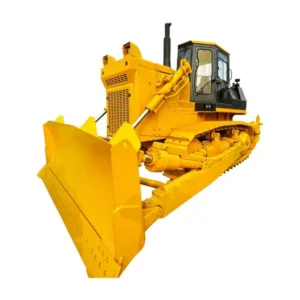
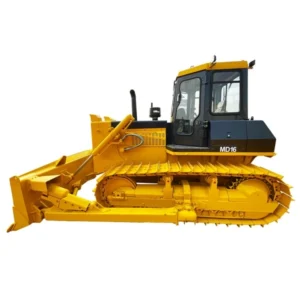
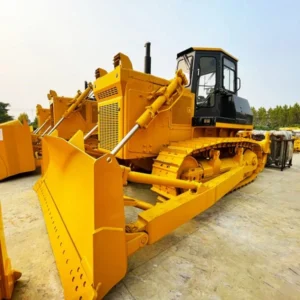

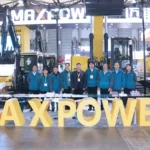
-150x150.webp)
